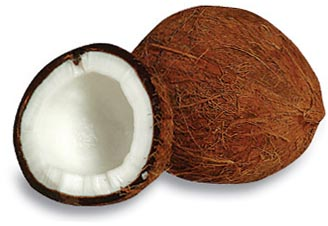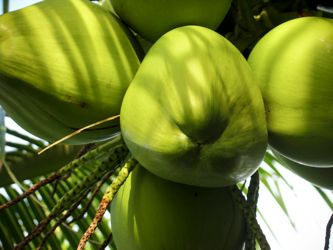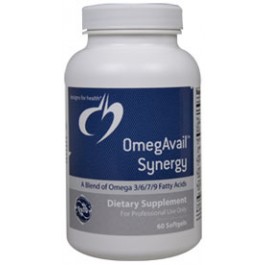The last two decades have shown a dramatic increase in the popularity of fat-free, low fat, non-fat food items. Diet gurus and even the American Heart Association touted...
The Health Benefits Of Coconuts

Probably my favorite super food to talk about and recommend is the coconut! And when I say coconut, I mean in almost any form you can find it (save for candies and overly-sweetened treats). Coconut oil; coconut water; coconut milk; coconut vinegar; coconut flour; coconut sugar, coconut coconut!
This brown hairy nut is actually the seed of the fruit of the coconut palm tree. Coconuts grow in clusters of ten to twenty. Each tree will have from ten to twenty different clusters growing at one time, all in different stages of development. Once fully matured, the nuts reach a diameter of about 10-12 inches. Their hard outer shell is lined with a fleshy white meat, and the hollow center is filled with a mildly sweet juice often called "coconut water."
Health Benefits of Coconuts
The coconut and its oil has been wrongfully accused for being bad for heart health. This because it is partially saturated fat. However, we have since learned that not all saturated fats are created equal. Saturated fats that are not highly refined and from healthy sources are actually good for you. Moreover, coconut oil is actually mostly made up of medium-chain fatty acids which are healthy for the heart. The best coconut oils are virgin (unrefined), organic and either cold-pressed or extracted by centrifuge.
One 1/2 a cup of shredded coconut meat packs 4 g of fiber, 142 mg of potassium, 13 mg of magnesium, less than 3 g of sugar, and a whopping 13 g of amazingly healthy fat! Studies show the coconut oil will actually speed up the metabolism and help with weight loss. We have become so accustomed to hearing that fat makes us fat, but this is not the case with coconut oil. The lauric acid found in the coconut is a medium-chain fatty acid. These types of fats are easier for the body to metabolize and are a great source of energy. Lauric acid is also antibacterial and antiviral.
Coconuts are an excellent source of manganese, molybdenum and copper. It is also a good source of selenium and zinc. Its high electrolyte content makes it a healthy sport drink. It has even been used during times of war intravenously when blood supplies were unavailable to save the life of an ailing soldier.
 More Coconut Health Facts
More Coconut Health Facts
- The roots are used for dysentary and other intestinal issues.
- A porridge made from the bark is used to alleviate pain from toothaches.
- Buds cut from the top of the tree are naturally diuretic, served in salads and pickled.
- The astringent flowers are used to treat dysentery, urinary infection, diabetes and leprosy.
- Unopened flower stalks are used to make a distilled spirit called arrack.
- Fibers of the trunk are used as a diuretic; to treat tapeworm; to soothe a soar throat.
- Burning the shell of the coconut to produce a treatment for skin disease has been common with some native tribes.
- The coconut water when fresh is an astringent because of its slight acidity; is made up of 95% water; is used as a treatment for intestinal worms and urinary disorders.
- The sap of the coconut palm will act as a mild laxative.
I suggest frying with the oil; drinking the water and milk (full fat); cooking with the milk (think curry); baking with the flour; dressing with the vinegar; use it abundantly! My only concerns are that the cans many of the milks are sold in are known to be lined with BPA's (a known hormone disruptor). And stay away from highly refined and overly-sweetened foods made with coconut. Other than that, enjoy this funky nut!
Are you considering a Detox Program to improve your health? Sign up here for a FREE consultation to Jump Start Your Detox and set off on the right foot!
(sources: The Encyclopedia of Healing Foods; 150 Healthiest Foods on Earth; The World's Healthiest Foods)


